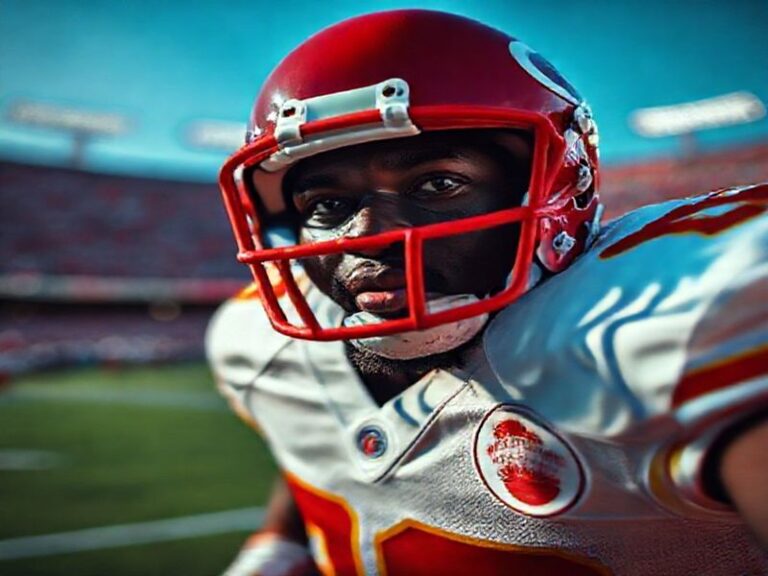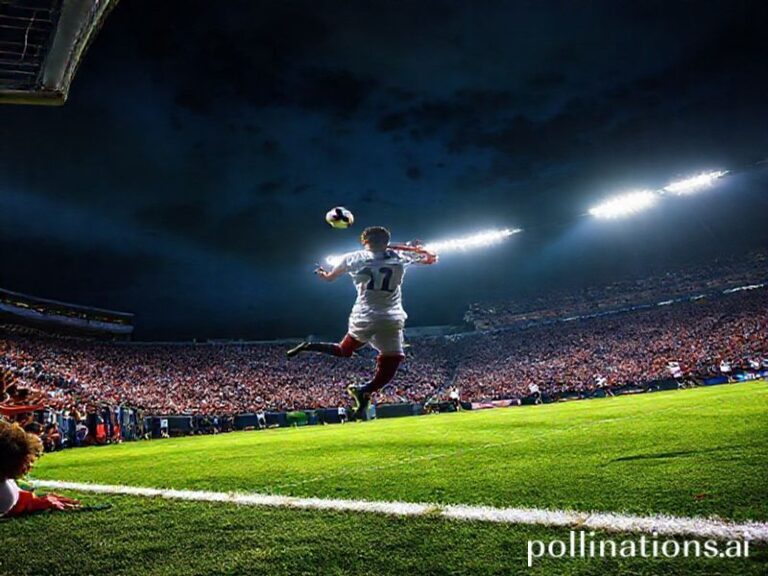Taylor Fritz: America’s Last Serve Before the Lights Go Out – A Global Courtside Dispatch
Taylor Fritz: America’s Last Serve Before the Lights Go Out
By Dave’s Foreign Correspondent, filing from a press box that still smells faintly of 1980s corduroy and geopolitical angst
The planet’s most under-rehearsed superpower has, for once, dispatched a tennis player who doesn’t look like he’s been cryogenically thawed from a country-club mixer circa Eisenhower. Taylor Fritz—6′5″, forehand like a malfunctioning drone, hair that suggests a part-time career in shampoo commercials—has become the United States’ reluctant standard-bearer at a moment when the country’s other exports are mostly inflationary gloom and algorithmic outrage.
From Melbourne to Monte Carlo, the sight of Fritz stalking a baseline is now greeted with the same diplomatic curiosity once reserved for American aircraft carriers: impressive, slightly menacing, but mostly useful as a reminder that Washington still has enough loose change to fund a backhand. He is, in other words, the rare U.S. athlete who can walk into Roland-Garros without having to explain his president’s latest social-media brain spasm.
Europe, nursing its own succession of existential crises (energy bills rivaling the GDP of minor duchies, populists who look like they’ve been focus-grouped by Netflix), watches Fritz with the wary affection normally reserved for a well-trained golden retriever that might still bite the mailman. The European tennis establishment spent a decade gleefully dancing on American clay-graveyards, but Fritz has quietly reversed the trend: finalist at Indian Wells, semifinalist at the ATP Finals, a ranking that hovers inside the top ten like a polite but stubborn houseguest who refuses to acknowledge the party is over.
Asia, meanwhile, treats him as a data point. Chinese streamers track his every serve speed with the same intensity they apply to quarterly GDP targets; Japanese advertisers note his symmetrical cheekbones and wonder whether he can be merchandised into a collectible figurine next to the Evangelion shelf. South Koreans, ever pragmatic, simply ask if he can beat Alcaraz—because if he can, there’s money to be made in futures markets that trade on national pride.
The Global South watches with the detached amusement of people who’ve long since learned that superpowers prefer their sports metaphors served with a side of soft power. In Lagos, Nairobi, and Bogotá, sports bars display Fritz’s matches on mute while patrons debate whether American decline is best measured in dollar-denominated debt or unforced errors.
Back home, Fritz’s ascent has coincided with the slow-motion implosion of cable television, the medium that once turned tennis into suburban wallpaper. Now he streams directly into the phones of a nation that can’t agree on anything except the shared trauma of buffering. His matches are interrupted by pop-up ads for meditation apps promising to cure the very anxiety his third-set tiebreak induces.
The broader significance? In a world where nations increasingly outsource their diplomacy to trade delegations and TikTok influencers, Fritz is a refreshingly analog projection of American potency: one man, one racquet, and a dwindling reserve of Wilson balls stamped Made in China. If he wins a major, expect breathless op-eds comparing him to Apollo missions or the Marshall Plan. If he doesn’t, he’ll still be the most successful Yank in a generation—proof that even a fractured empire can occasionally produce a serve that clocks 140 mph without first requiring congressional approval.
And so we watch, half-awake in time zones that make us question the very concept of sleep, as Taylor Fritz marches through another draw. He is neither savior nor symptom—merely the latest contender in a sport that, like everything else these days, is trying to remember why it still matters. When the final ball is struck, the nets will be rolled up, the stadium lights dimmed to save on electricity bills, and we’ll all shuffle back to the geopolitical locker room where the towels are smaller and the stakes are larger.
Serve’s up. Try not to think about the end of the world while the ball’s in the air.







